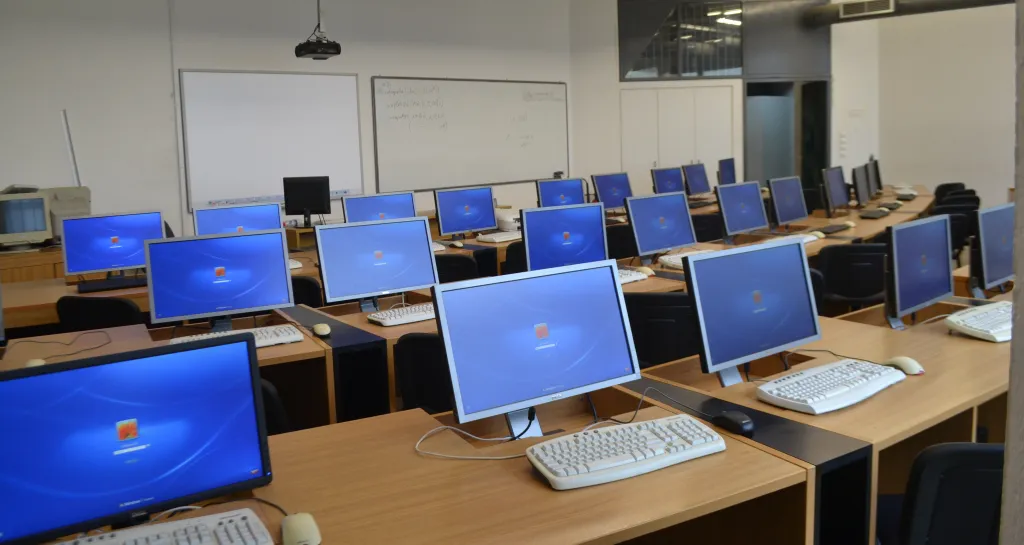Education
UNDERGRADUATE
Throughout the long history of the NTUA, a high level of mathematical education has been considered essential for the proper training of engineers. Thus, mathematics at the NTUA has always provided not only an essential knowledge base, but also shaped the scientific training of the institution’s graduates in general. The founding decree of 1836 highlights the important role of mathematics as a basic tool for technological development, both in terms of the dynamics of its theory and the wealth of its applications. The combination of these two objectives, namely the training of skilled engineers and the provision of high-level mathematical education, formed the framework, based on the model of the French Polytechnic School, within which the NTUA began to operate alongside other European polytechnics. Distinguished mathematicians developed and refined a high-level mathematics program that, in addition to equipping all students with knowledge suitable for technological applications, also attracted students who went on to become distinguished mathematicians themselves. The Department of Mathematics continues this tradition today, educating students of the School of Applied Mathematical and Physical Sciences (with approximately 60 courses) as well as other schools of the National Technical University of Athens (with approximately 50 courses), providing them with a high level of mathematical education.
POSTGRADUATE
Interdepartmental Graduate Programs
Interdepartmental postgraduate programs lead to a postgraduate diploma of specialization, after a minimum of one full calendar year of study.Coordinated by the Department of Mathematics
- Applied Mathematical Sciences – Coordinator Αναπ. Καθ. Γιαννακάκης Νικόλαος
- Mathematical Modeling in Modern Technologies and Financial Engineering – Coordinator : Καθ. Λαμπροπούλου Σοφία
With the participation of the Mathematics Department
- Algorithms, Logic, and Discrete Mathematics
- School of Naval Architecture and Marine Engineering
- Data Science and Machine Learning
DOCTORATE
The mandatory coursework for PhD Candidates is four (4) semesters for tracks with six (6) courses and five (5) semesters for tracks with ten (10) courses. The minimum total time for the preparation of a thesis is foreseen at a minimum of three (3) full academic years.
LABORATORY - PC LAB

The Personal Computer Laboratory (PCLAB) of the Department of Mathematics consists of 34 Dell Optiplex 990 computers.
The PCLAB is used to teach laboratory courses in the Department of Mathematics, such as “Statistical Quality Control,” “Linear Models & Designs,” “Operations Research,” “Numerical Analysis I & II,” “Regression Analysis,” “Reliability & Survival Models,” “Software,” “Bayesian Statistics,” “Computer Data Analysis,” etc.
For the purposes of the above courses, modern software is used, such as: “Matlab,” “Maxima,” “Octave,” “MiniTab,” “R,” “GeoGebra,” “WinBugs,” “BlueJ,” “SciLab,” etc.
For the availability of the Laboratory, see the link : PCLAB availability.